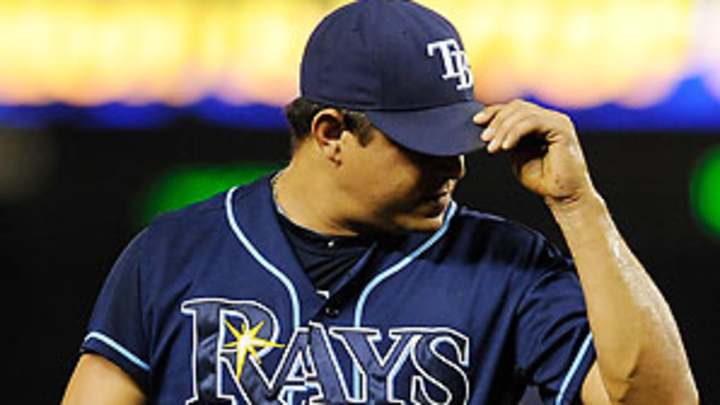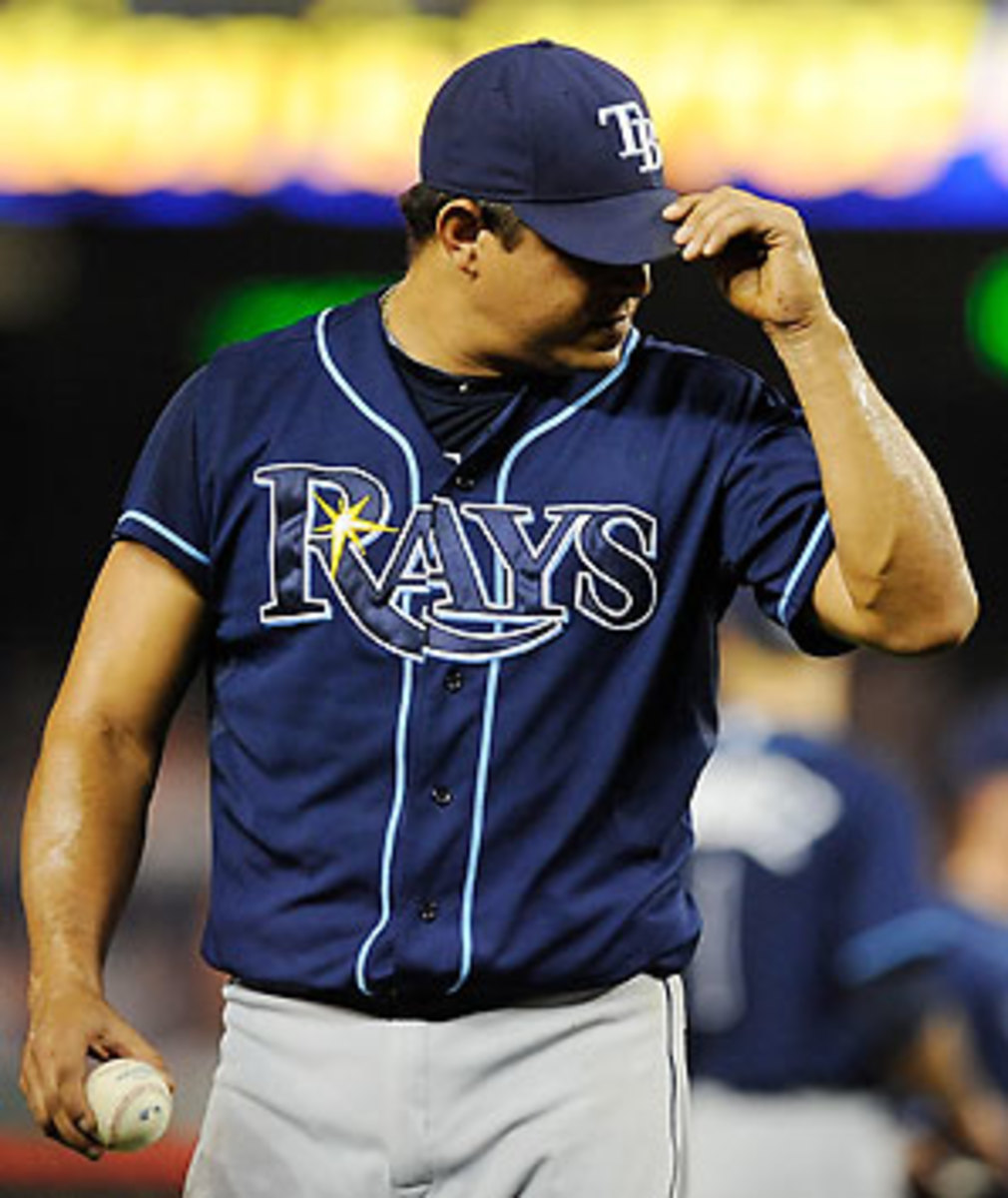The problem with Peralta's suspension

Joel Peralta tipped his cap toward the Nationals dugout after they busted him for using pine tar in his glove. (Patrick McDermott/Getty Images)

On Tuesday night, Rays reliever Joel Peralta was ejected from a game against the Nationals after umpires found pine tar in his mitt, an incident that set off a silly but entertaining war of words between managers Joe Maddon of Tampa Bay and Davey Johnson of Washington. Major league baseball isn't laughing about the infraction, however. On Thursday, the commissioner's office gave Peralta an eight-game suspension.
Quite frankly, that's a draconian punishment. It's way out of proportion compared to the five-game suspension Phillies pitcher Cole Hamels drew for admitting that he intentionally hit the Nationals' Bryce Harper with a pitch back on May 6. Hamels' next turn was simply bumped back a day; thanks to an off-day, the Phillies didn't even miss him, they simply moved Roy Halladay ahead of him in the rotation. Meanwhile, Peralta, who has pitched in a league-leading 36 of the Rays' 68 games, might miss four or five outings in his eight-game hiatus. One pitcher took an action that might have injured another, and wound up cooling his heels for an extra day. The other took an action that endangered no one — particularly since he didn't actually get to throw a pitch in the game before he was ejected — but unless the suspension is reduced via appeal, he stands to miss the bulk of three series. There's absolutely no logic in that.
Peralta's suspension is also out of proportion when compared to that of Brett Lawrie, who was rung up for four games after an ejection in which he tossed a helmet that bounced up and struck umpire Bill Miller, with whom he was arguing balls and strikes. Instant replay and PITCHf/x data both showed that the calls that preceded Lawrie's eruption were lousy, but his flouting of authority and introduction of a projectile into the proceedings both presented greater threats to those around him than Peralta's glove.
Beyond that, there's even less logic in the fact that Peralta's suspension is longer than that of Delmon Young, who was iced for seven days after being arrested on an aggravated hate crime harassment charge in which he allegedly shouted anti-Semitic epithets amid a drunken altercation outside of his hotel in New York. Young's behavior was dangerous and antisocial, yet he missed less time than Peralta. For that matter, the same can be said for the spate of players arrested for driving under the influence of alcohol in recent years, none of whom have been disciplined by MLB. If DUIs are a matter for law enforcement officials but not for the commissioner, why was the Young situation different in that regard, and why did the commissioner's office rate it as less serious than pine tar in the mitt?
Peralta violated a rule that's on the books, specifically Rule 8.02 pertaining to foreign substances on the ball. Beyond the element of actually doctoring the ball — a time-honored practice that's always been part of a cat-and-mouse game between pitchers, managers and umpires — it's a rule that is apparently widely ignored throughout the game; the last players to be disciplined for such an infraction were Julian Tavarez in 2004 and Brendan Donnelly in 2005. Former Indians reliever Roy Smith said that 75 percent of professional pitchers put pine tar in their mitts. Maddon claimed that the substance doesn't influence the movement of the ball, just the pitcher's ability to grip it, and that such use is "common knowledge in the industry… Everybody's OK with it." If that's the case, the players' union should discuss the elimination of the rule with MLB's Playing Rules Committee, or at least suggest minimizing the severity of the penalty for infraction by forcing the removal of the offending equipment instead of the player.
Despite his calling out of Johnson, Maddon's indignation is at least more muted than that of Royals great George Brett, who famously exploded out of the dugout after a homer he hit against the Yankees in 1983 was disallowed because the pine tar on his bat was too far up the handle. The American League president eventually overruled home plate umpire Tim McClelland's decision on the grounds that it didn't influence the home run, and the game was replayed from that point. As with Peralta, the issue with Brett was one of selective enforcement. Both players were allowed to carry on with their sticky business until the most (in)opportune time, when an opponent challenged the propriety of their equipment. Why have a rule if it's not going to be applied uniformly?
Beyond the value of the rule and the length of the suspension, everything else here is a sideshow. It's a bit discomforting that Johnson acted on inside information against a former National (Peralta played for Washington in 2010, and though that was before Johnson became the team's manager, he had worked for the organization since 2006), but Maddon's chest-thumping over his opposite number's actions and whether future free agents would consider the Nationals are meaningless; any team that has Stephen Strasburg, Bryce Harper, money and a shot at contending is going to do just fine luring players to DC.
